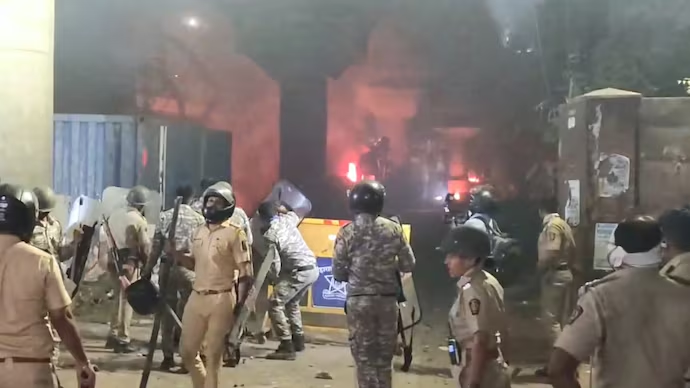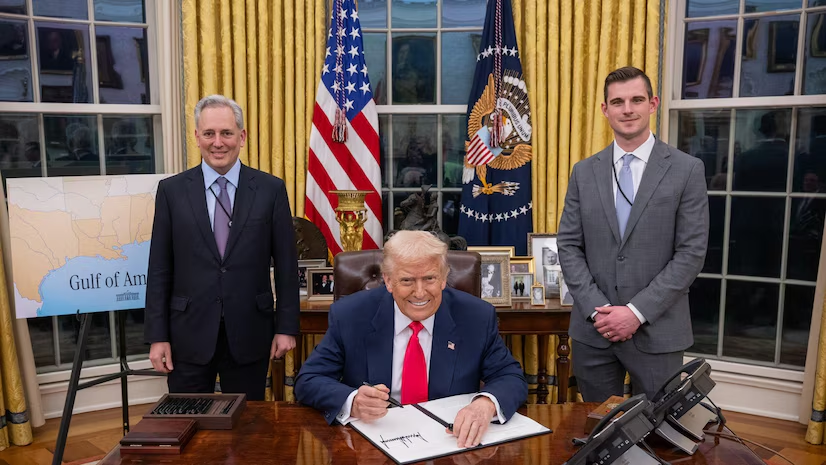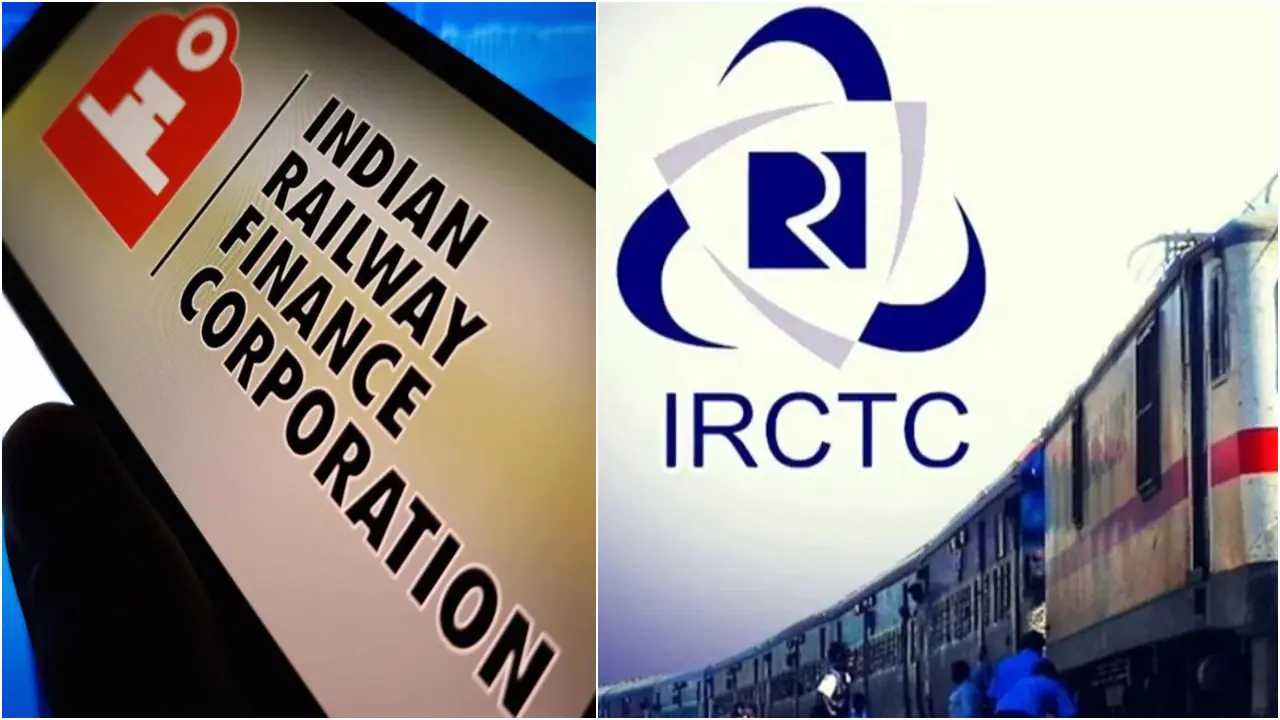- Courses
- GS Full Course 1 Year
- GS Full Course 2 Year
- GS Full Course 3 Year
- GS Full Course Till Selection
- CSAT
- 5 LAYERED ARJUNA Mentorship
- Public Administration Optional
- Online Program
- GS Recorded Course
- NCERT Batch
- Polity Module Course
- Geography Module Course
- Economy Module Course
- AMAC Module Course
- Modern India, Post Independence & World History Module Course
- Environment Module Course
- Governance Module Course
- Science & Tech. Module Course
- International Relations and Internal Security Module Course
- Disaster Management Module Course
- Ethics Module Course
- Essay Module Course
- Current Affairs Module Course
- ABOUT US
- OUR TOPPERS
- TEST SERIES
- FREE STUDY MATERIAL
- VIDEOS
- CONTACT US
The Political Orchestration of Riots: Lessons from Nagpur
The Political Orchestration of Riots: Lessons from Nagpur

- Violence erupted in Nagpur on March 17 following controversies surrounding Aurangzeb’s tomb.
- The situation escalated due to rumors of Quran burning, which fueled public outrage and unrest.
- Amid the chaos, reports emerged of a police officer being assaulted, adding to the law-and-order crisis.
Riots in India: Manufactured, Not Spontaneous
- Empirical evidence suggests that riots in India are often strategically influenced rather than being spontaneous eruptions of social tensions.
- The Nagpur violence, which left dozens injured, cannot be attributed solely to rumors or impulsive reactions.
Political Rhetoric and the Use of Historical Narratives
- Since the Maharashtra Budget session began on March 3, historical figures have been invoked as a political talking point.
- The fact that a medieval ruler remains central to contemporary political discourse highlights:
- Misplaced governance priorities.
- Deliberate attempts to manufacture controversies to shift focus from economic concerns.
Maharashtra’s Real Issues Ignored
- The State, particularly its rural regions, faces serious socio-economic challenges, including:
- Inflation.
- Agrarian distress and related hardships.
- Widespread economic instability.
- Instead of focusing on practical solutions, public discourse appears diverted toward divisive narratives.
Political Strategy: Mobilization for Electoral Gains
- During the recent Assembly elections, historical figures and past events were consistently referenced to create political narratives.
- The intent behind this approach:
- Mobilize a broader electoral base through identity-based appeals.
- Shape public perception by linking present events to historical figures.
- Research indicates that societies with strong civic engagement and inter-community cooperation are less prone to unrest.
- The occurrence of violence in Nagpur, a city with significant historical and political importance, raises concerns about the effectiveness of conflict prevention strategies.
The Role of Cinema in Political Discourse
- The recent success of a historical film depicting past conflicts has further fueled contemporary discourse.
- Attributing unrest to the film’s popularity serves as a convenient deflection, shifting attention from broader socio-political factors influencing tensions.
The Need for a Shift in Governance Priorities
- Maharashtra must reclaim its leadership in development-focused governance, prioritizing economic and social well-being over divisive rhetoric.
- Public awareness and civil society initiatives should push back against the use of history as a tool for polarization.
- Promoting inclusive discourse and addressing core governance issues is essential for ensuring long-term social stability and progress.
Communal Mobilization as a Political Strategy: A Critical Analysis
1. Understanding Mobilization through Identity Politics
- Mobilization based on religious, ethnic, or sectarian identities is used to consolidate political support.
- Tactics: Political actors exploit historical grievances, cultural symbols, and perceived insecurities to rally public sentiment.
- Objective: The goal is to polarize communities, ensuring a consolidated electoral base, while diverting focus from core governance issues.
2. Historical Context of Identity-Based Mobilization in India
Partition-era Politics (Pre-1947)
- The colonial policy of divide and rule deepened social divisions.
- Political organizations used identity-based appeals to consolidate their respective support bases.
Post-Independence Identity Politics
- While secularism was embedded in India’s Constitution, political competition increasingly became identity-driven.
- Riots and polarization tactics have been used to influence elections, particularly since the 1980s.
Rise of Identity-Based Politics (1990s-Present)
- Events such as historical site disputes and past communal conflicts have been leveraged for political gains.
- Recent trends include:
- Renaming of places and historical revisionism to reshape national narratives.
- Selective references to past rulers and empires to create contrasting identities.
Key Strategies of Political Mobilization Through Identity
- Historical and Cultural Narratives
- Reinterpretation of historical events to frame one group as dominant and another as adversarial.
- Renaming places and reframing public memory to strengthen ideological affiliations.
- Coded Messaging and Polarizing Discourse
- Use of indirect language that evokes historical injustices or cultural pride, without explicitly promoting division.
- Public speeches, media campaigns, and digital platforms play a crucial role in amplifying these narratives.
- Electoral Engineering and Conflict-Oriented Politics
- Strategic unrest before elections creates an environment of heightened identity-based consciousness.
- Identity-based political appeals help in solidifying voter bases while fragmenting opposition coalitions.
- Symbolism and Public Events
- State-backed religious, cultural, or memorial events reinforce political identity.
- Selective commemorations or erasures of historical events reshape public narratives.
- Economic and Social Exclusion
- Deprivation of certain social groups fosters a sense of victimhood, which political actors can exploit.
- Framing economic challenges as identity-based issues redirects public discontent towards rival groups instead of governance failures.
Impact of Identity-Based Mobilization
- Electoral Gains and Vote Bank Politics
- Divided societies vote along identity lines, reducing the impact of issue-based campaigns.
- Weakened opposition unity due to fragmentation along identity groups.
- Erosion of Democratic and Constitutional Principles
- Undermines secularism and pluralism, essential for democratic functioning.
- State institutions, law enforcement, and media become politicized to support dominant narratives.
- Economic and Social Disruptions
- Heightened tensions affect economic stability, particularly in regions with frequent unrest.
- Investors and businesses withdraw from conflict-prone areas, leading to long-term economic consequences.
- Rise in Hate Crimes and Social Marginalization
- Increased communal tensions lead to discrimination in education, employment, and public services.
- Inter-community relationships and social coexistence weaken, increasing long-term divisions.
Countering the Politics of Identity-Based Mobilization
- Strengthening Social Integration and Civic Engagement
- Encouraging inter-community collaboration and dialogue to counter divisive narratives.
- Grassroots peace initiatives to build trust and cooperation across identities.
- Media Accountability and Ethical Journalism
- Reducing sensationalism in news reporting to prevent exaggeration of identity-based conflicts.
- Social media regulation to curb hate speech and misinformation.
- Political and Electoral Reforms
- Stronger laws against hate speech and divisive campaigns.
- Electoral reforms to discourage identity-based mobilization strategies.
- Public Awareness on Developmental Priorities
- Shifting political discourse from identity-based narratives to economic development, education, healthcare, and employment.
- Encouraging voter awareness campaigns to emphasize policy-based decision-making rather than emotional or divisive appeals.
- Strengthening civic education in schools and colleges to promote rational discourse and critical thinking about political strategies.
- Engaging youth and grassroots organizations to counter identity-based mobilization with fact-based discussions on governance and development.
- Strengthening Institutional Safeguards
- Empowering the Election Commission with greater authority to regulate divisive political campaigns and enforce a level playing field.
- Ensuring judicial independence so that legal institutions can act against communal propaganda without political interference.
- Strengthening parliamentary oversight to hold leaders accountable for identity-based rhetoric in electoral campaigns.
- Monitoring state institutions and law enforcement to prevent selective action that fuels divisions.
- Promoting Inclusive Economic Growth
- Addressing regional economic disparities to prevent grievance-based identity politics from taking root.
- Creating job opportunities and skill development programs in underserved areas to reduce migration-based or community-based economic insecurities.
- Encouraging corporate social responsibility (CSR) initiatives that foster social integration through community development projects.
- Boosting investments in education and healthcare to reduce reliance on identity-based mobilization as a political tool.
- Building a Culture of Dialogue and Reconciliation
- Encouraging inter-community dialogues to break down stereotypes and foster mutual understanding.
- Promoting conflict resolution mechanisms at local levels to address grievances before they escalate into larger disputes.
- Using social media and digital platforms to spread positive narratives that counter divisive propaganda.
- Encouraging moderate voices and peacebuilding initiatives through cultural and academic institutions.
- Moving Towards a Constructive Political Culture
- Communal mobilization is a short-term political strategy with long-term consequences for democracy, economy, and social harmony.
- Reforming political institutions, strengthening governance, and investing in public awareness are key to countering identity-based electoral strategies.
- A focus on inclusive development and rational discourse will ensure that elections are fought on policies and governance, rather than identity divisions.
- Political accountability, voter awareness, and institutional resilience are crucial to preserving democracy and social stability in the long run.
|
Also Read |
|
| NCERT Books For UPSC | |
| UPSC Monthly Magazine | Best IAS Coaching in Delhi |




